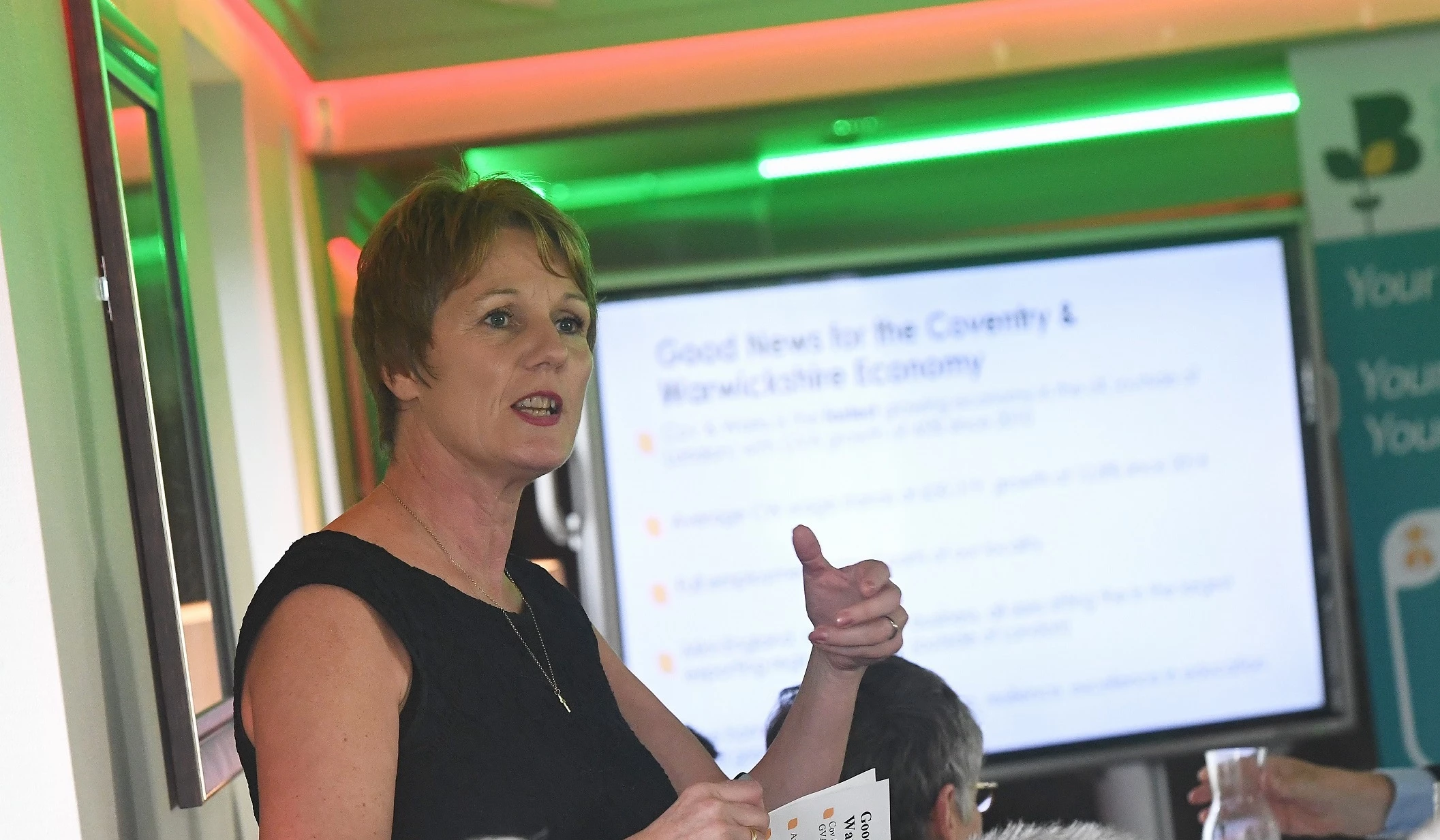
Partner Article
Firms confident they can adapt their workplaces, says Chamber of Commerce survey
The majority of firms are confident they can adapt their workplaces to help stop the spread of Covid-19, according to a survey.
Coventry and Warwickshire companies across a range of sectors are set for a gradual return after the Prime Minister’s address at the weekend and the subsequent guidance that has followed.
And the British Chambers of Commerce’s (BCC) latest Coronavirus Business Impact Tracker – which saw firms surveyed from May 5 to May 8, prior to the PM’s statement – showed that the vast majority of companies believe they are ready to adapt.
Three quarters said they could implement social distancing measures and 70 per cent said they were able to make provision for remote working. Almost two-thirds of companies surveyed said they could stagger staff arrival times.
Louise Bennett, chief executive of the Coventry and Warwickshire Chamber of Commerce, said: “The survey was taken just before the Government issued guidance on how businesses can get back to work and it’s important that companies are up to speed with what measures they need to take for the sector they fall within and the type of premises they operate from.
“What’s clear from the latest barometer is that companies, in the main, believe they can adapt their premises and working practices to meet the many challenges that the crisis has presented.
“It’s vitally important that we now work together as a region as we restart our economy and that support from Government is adapted as we shift from survival to building the foundations for recovery.”
Data from this week’s Tracker also revealed that 71 per cent of businesses surveyed have furloughed a portion of their staff, which remains consistent with previous weeks.
The percentage of respondents that have submitted a claim to the Government’s Job Retention Scheme and received payment remains high, at 73 per cent this week, up from 59 per cent last week. Only seven per cent of respondents submitted a claim more than six working days ago and are yet to receive payment. The results also indicate that very few businesses have not made any redundancies.
The furlough scheme continues to provide crucial support to businesses and is helping them to avoid redundancies. 63 per cent of firms agreed they could un-furlough staff as restrictions begin to ease, but 36 per cent said they could not although fieldwork was conducted before the Chancellor announced the extension of the furlough scheme until the end of October.
Over a third (36 per cent) of respondents have either attempted to use the Bounce Back Loan scheme or have plans to access it.
However, 62 per cent of respondents said they had no intention of applying for a Bounce Back Loan. Reasons for not attempting to access the scheme varied between firms with more than three months in cash, and those with less than three months.
Overall, 19 per cent of firms stated they had concerns about repaying the loan. However, this figure rose to 28 per cent among those with less than three months’ cash in reserve, and fell to 14 per cent for those with more than three months’ cash in reserve.
BCC Director General Dr Adam Marshall said: “The Job Retention Scheme has been successful in its aim to protect livelihoods and its extension will come as a huge help and a huge relief for businesses across the UK.
“The government should continue to listen to business and evolve the scheme in line with what’s happening on the ground. Further, phased support may yet be needed for companies who are unable to operate for an extended period, or those who face reduced capacity or demand due to ongoing restrictions.
“Government guidance signals big changes for the way that many businesses operate, and some firms will now need time to plan and speak to their employees so that they can return to work safely.
“Alongside this guidance, businesses urgently need clarity on the future of government support schemes, which must be adapted to help those firms who need to remain closed for an extended period or face reduced capacity or demand.”
This was posted in Bdaily's Members' News section by Matt Joyce .








 Raising the bar to boost North East growth
Raising the bar to boost North East growth
 Navigating the messy middle of business growth
Navigating the messy middle of business growth
 We must make it easier to hire young people
We must make it easier to hire young people
 Why community-based care is key to NHS' future
Why community-based care is key to NHS' future
 Culture, confidence and creativity in the North East
Culture, confidence and creativity in the North East
 Putting in the groundwork to boost skills
Putting in the groundwork to boost skills
 £100,000 milestone drives forward STEM work
£100,000 milestone drives forward STEM work
 Restoring confidence for the economic road ahead
Restoring confidence for the economic road ahead
 Ready to scale? Buy-and-build offers opportunity
Ready to scale? Buy-and-build offers opportunity
 When will our regional economy grow?
When will our regional economy grow?
 Creating a thriving North East construction sector
Creating a thriving North East construction sector
 Why investors are still backing the North East
Why investors are still backing the North East